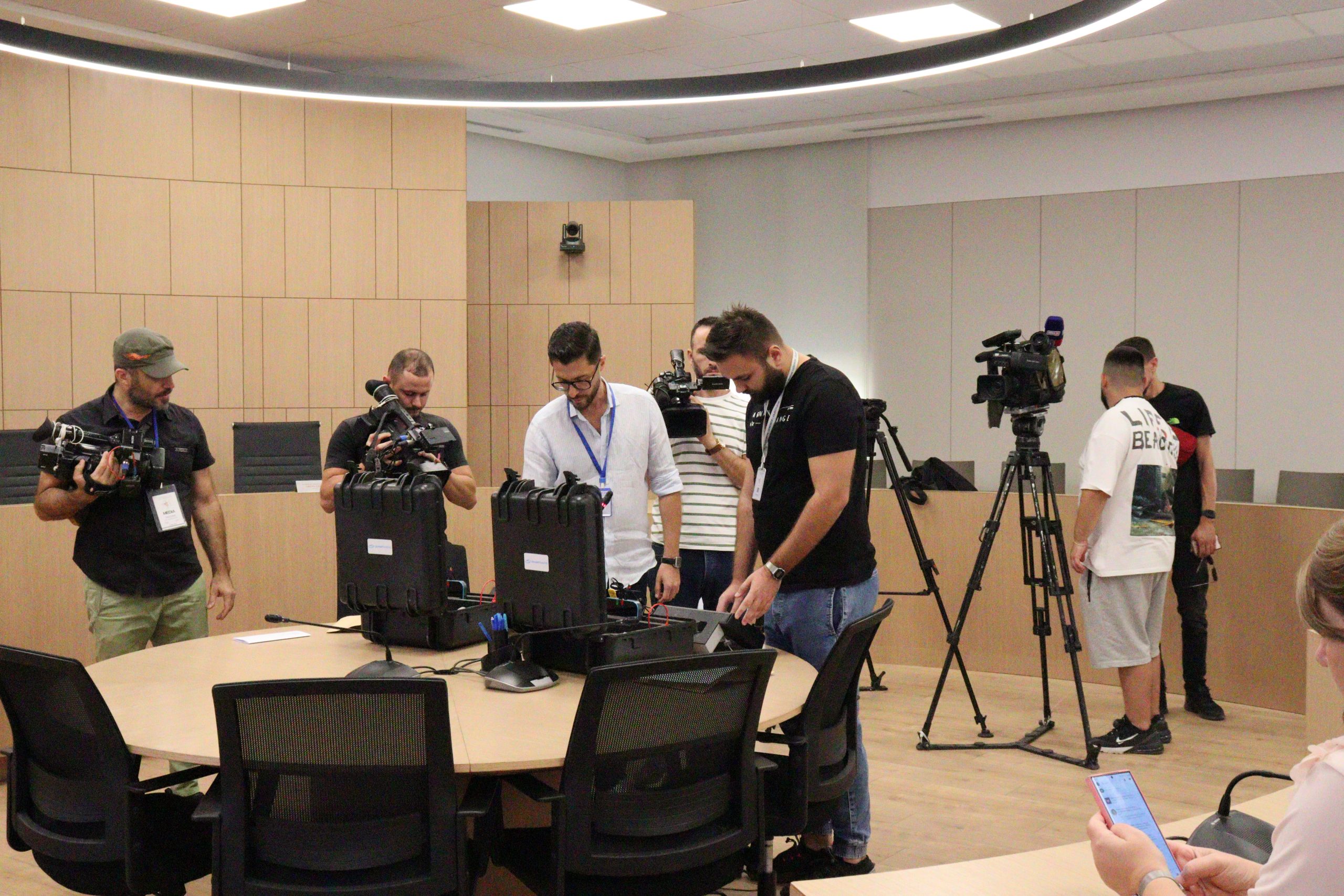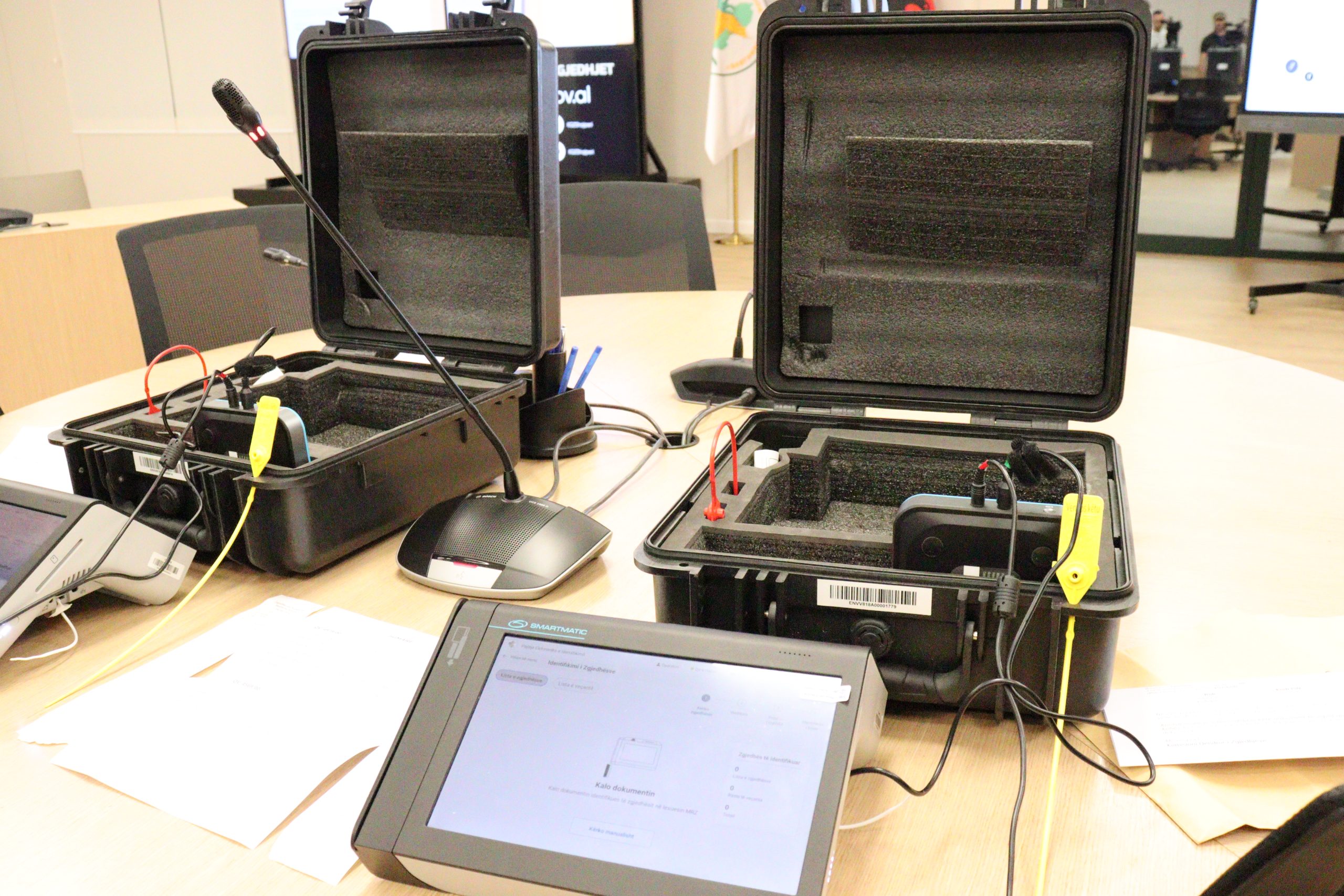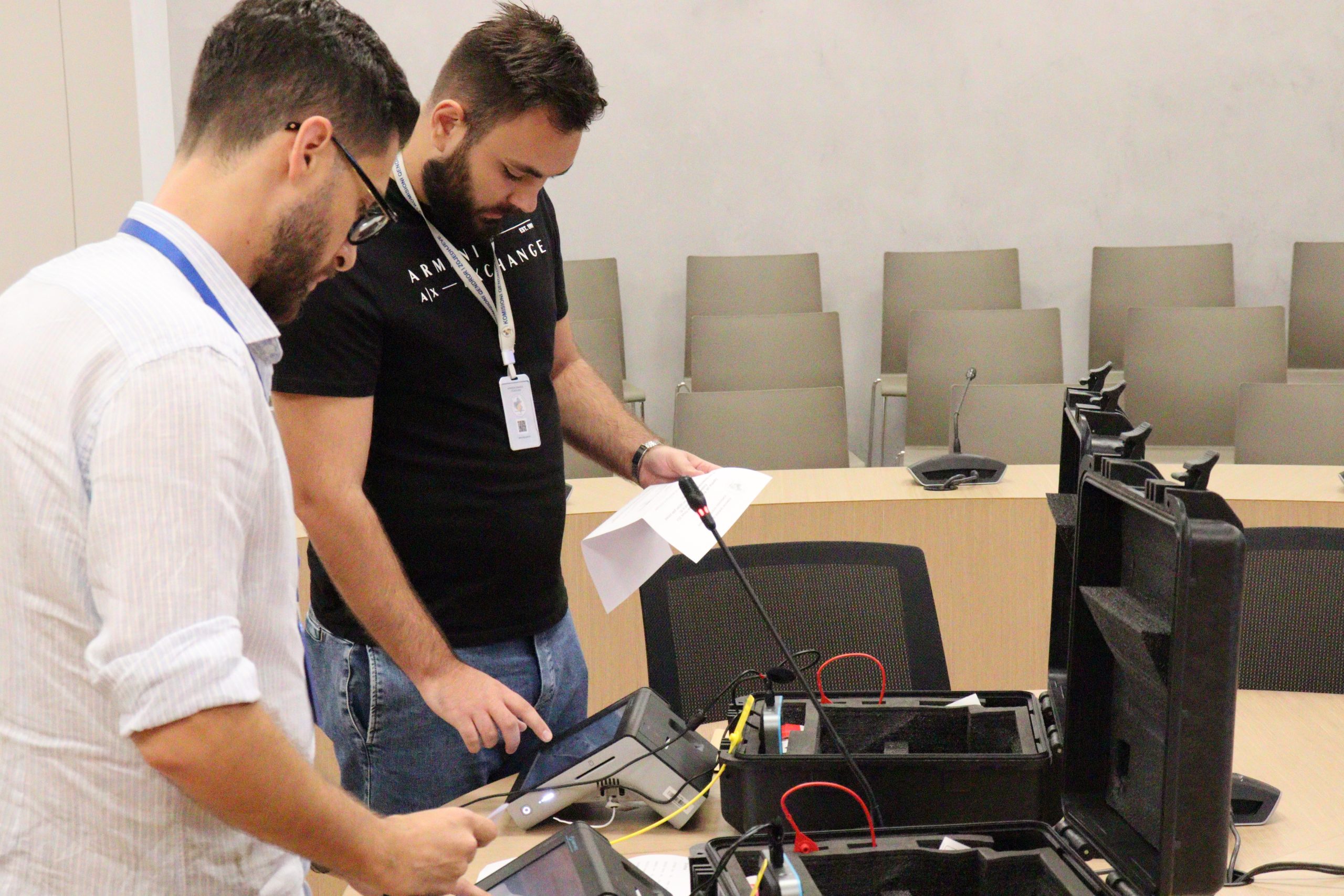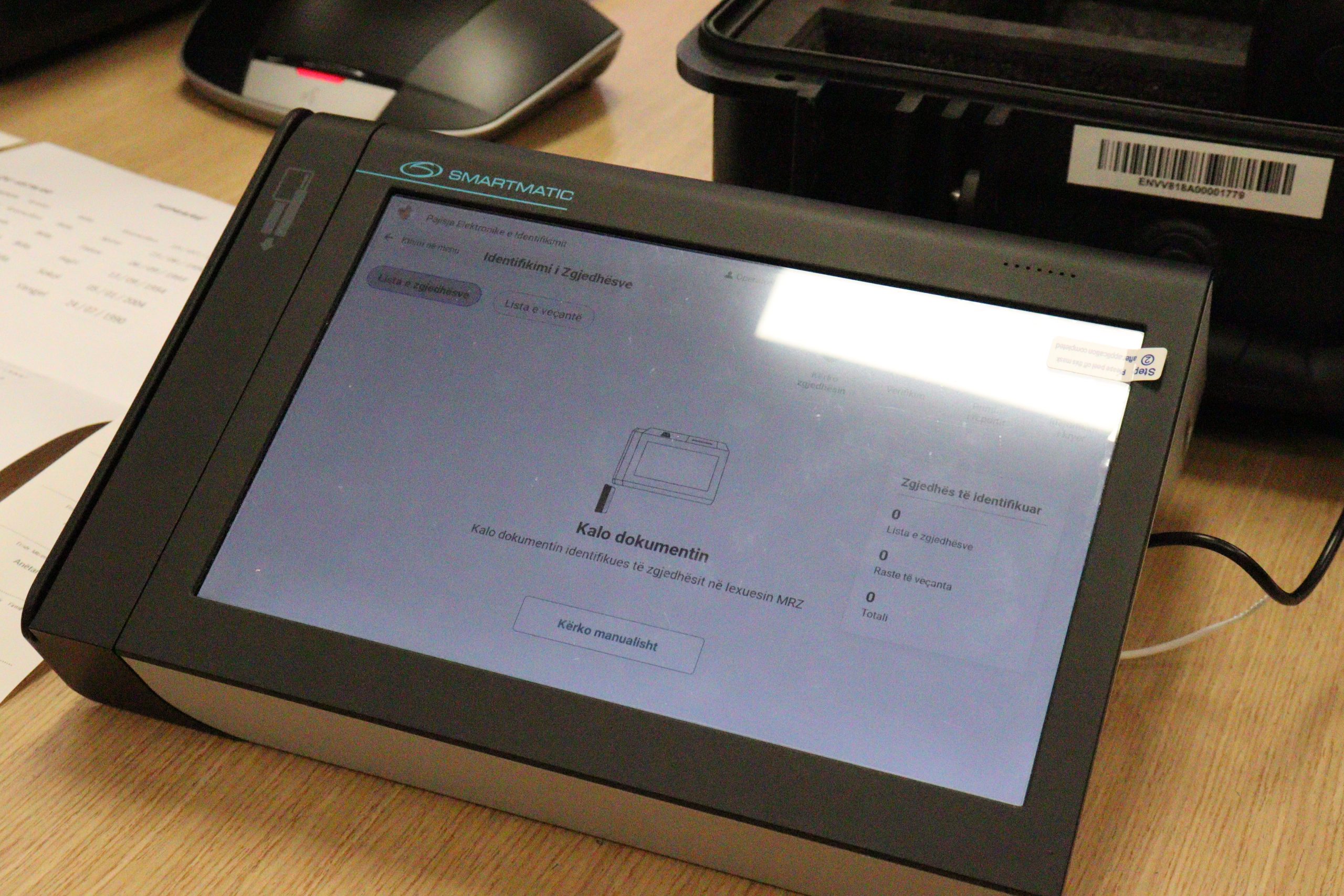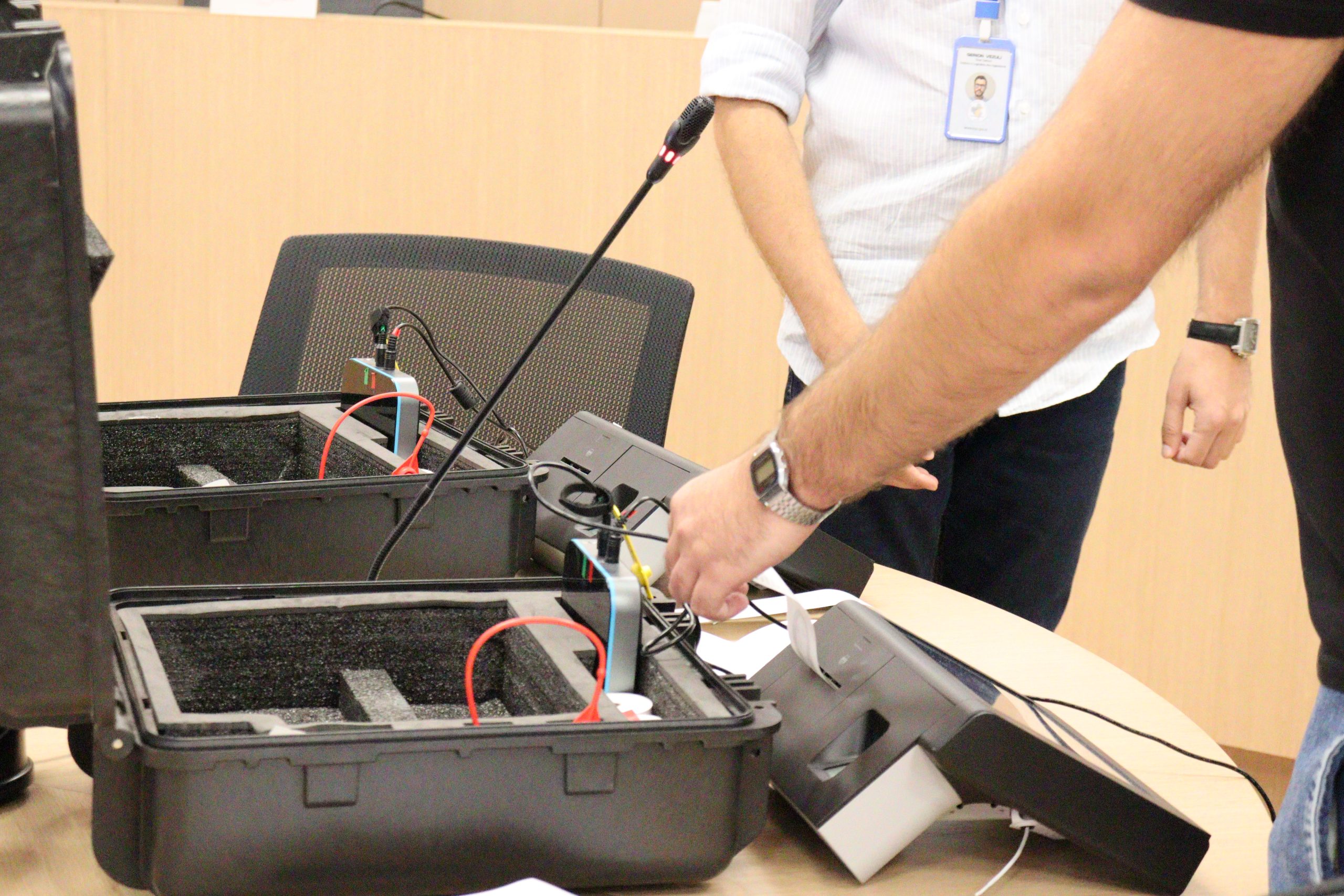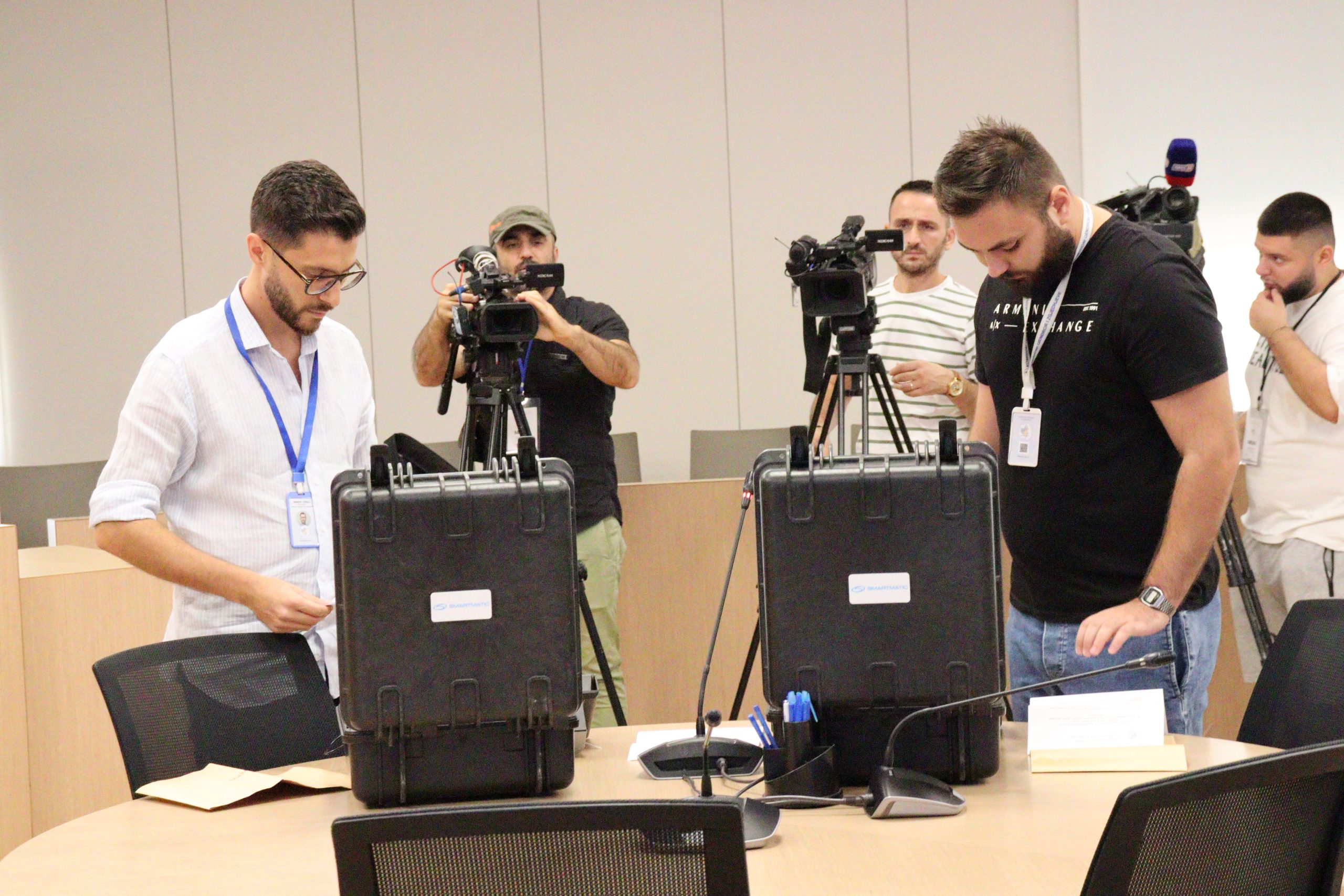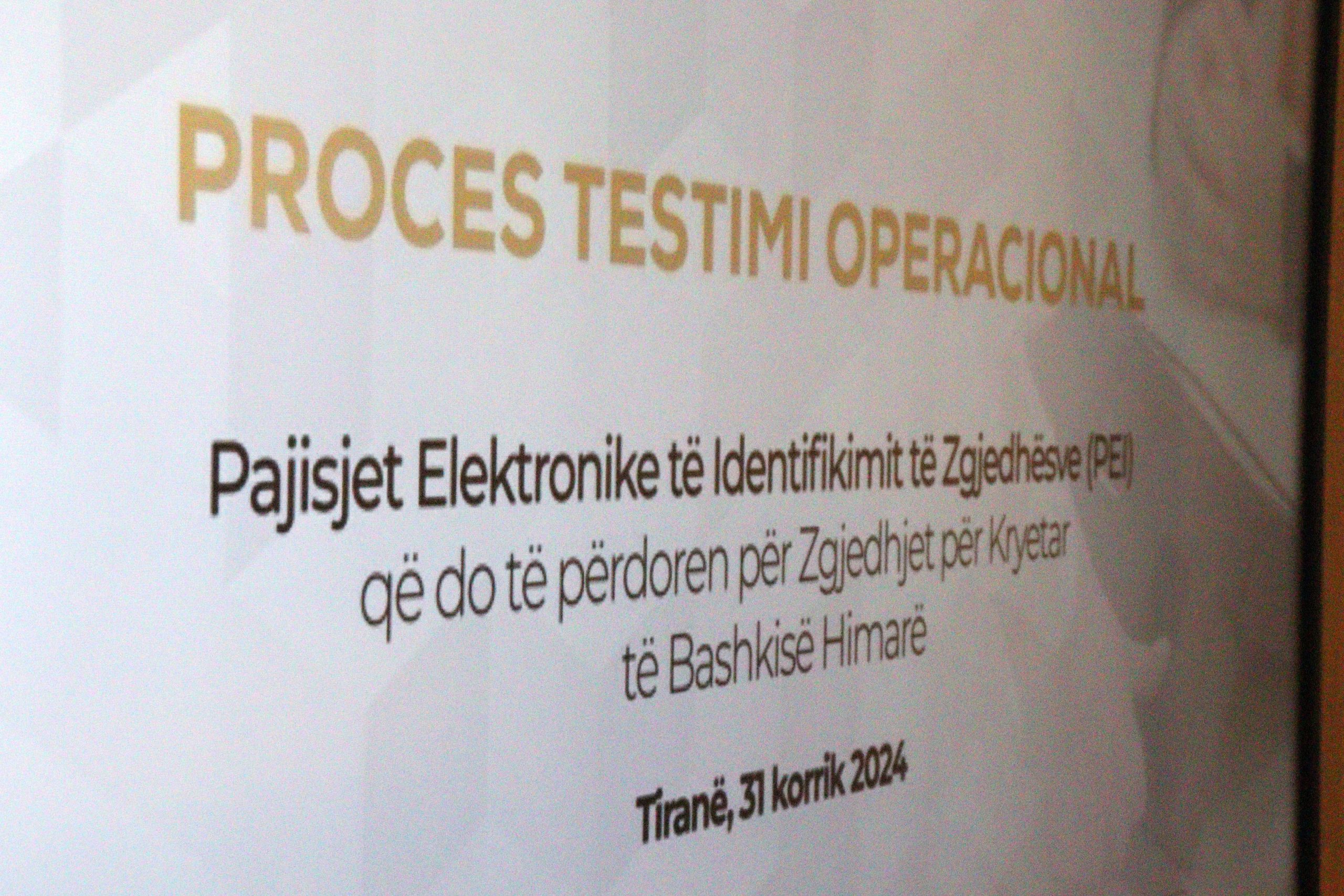Today, the Central Election Commission conducted the operational testing of the electronic voter identification (PEI) devices that will be used in the partial elections for the mayor of Himara, which will take place on August 4, 2024.
For the identification of voters, the Electronic Voter Identification System (SEIV) will be implemented, and Electronic Identification Devices (EIDs) located in 36 polling stations will be used, which will ensure the correct identification of voters, based on the electronic register of voters. inserted in the device.
3% of the devices were randomly selected to test the compliance of the criteria from the CEC in relation to what the devices offer. The simulation process in this operational test verifies elements such as: if a voter belongs to that voting center, if a voter tries to vote more than once, or if a voter is in the wrong voting center as well as the special cases related to the commissioners or voters who appear by court decision.
The electronic identification process will include the same identification principles as performed under manual conditions.
On the E-day, the voter will appear at his voting center with a biometric ID card or passport, to be identified through the PEI device, where, in addition to the identification document, he will also leave dactyloscopy prints (fingerprints), which will serve for recorded cases of illegal voting.
